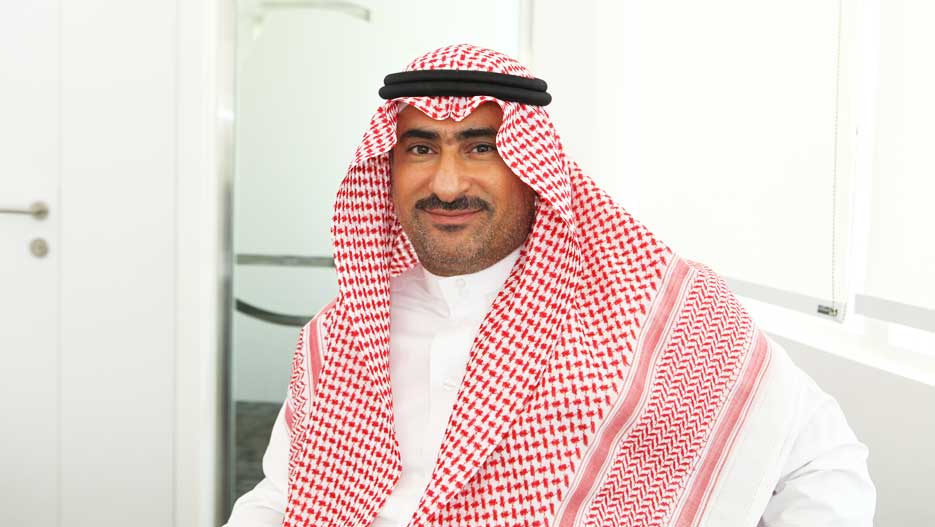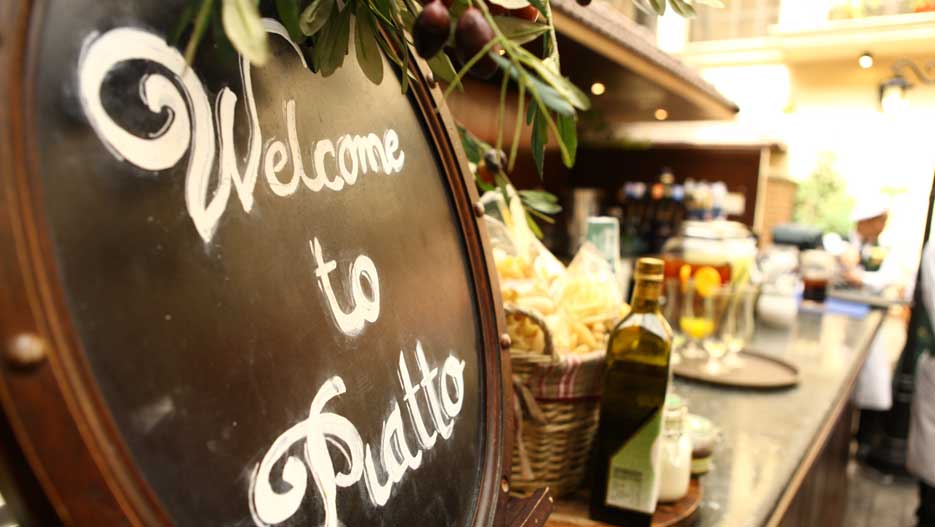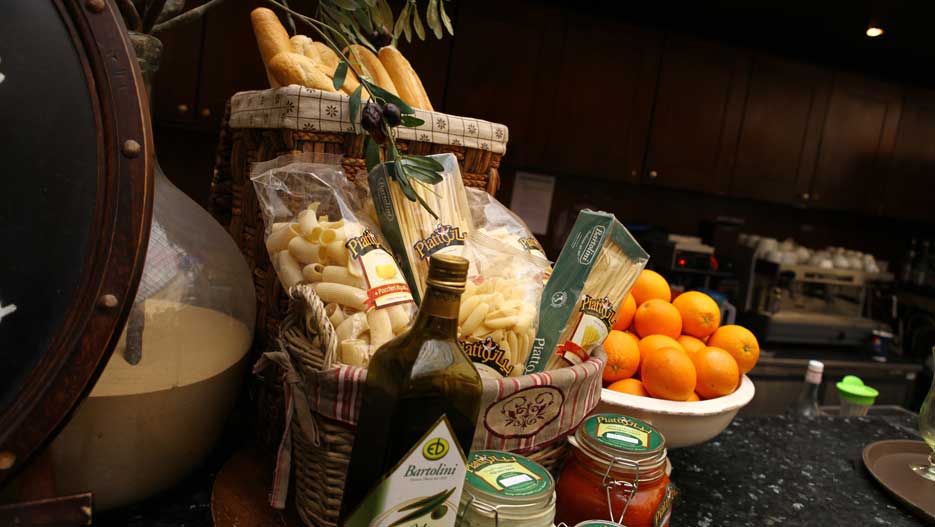Agriculture in Saudi Arabia: Water is the Biggest Challenge
Ali O. Al-Rakban, CEO of Al Safi, Saudi Arabia
With our 35 years of experience in Saudi in the modern agricultural industry and especially in dairy as well as in poultry, I believe we created a world-class, efficient agricultural project. The biggest challenge is and will be with water consumption. For example, today 96% of the water consumption in the dairy business comes from feeding.
Interview with Ali O. Al-Rakban, CEO of Al Safi, Saudi Arabia

Please tell us about your background.
I have a Bachelor’s degree and Master’s degree in Engineering. I studied leadership and advance management from IMD as well as from Oxford University. I started my career as an engineer and gradually I moved into project management. After that I moved into managing businesses. Today I have 23 years of experience including management leadership and technical experience. I am currently a board member of Al Safi Danone Co. in KSA, board member of Al Safi Danone Co. in Iraq, board member of ND Logistic Co., board member of Saudi fisheries Co., board member of Saudi Public Transportation Co., board member of Saudi Bahraini Transportation Co., and a member of the advisory council of College of Food Sciences and Agriculture in KSU.
I was a board member of Al Kharj Chamber of Commerce and Industry and the Chairman of Agriculture Committee, a member of the of Saudi- Syrian and Saudi- Sudanese business committees in the Council of Saudi Cambers and a member of Young Arab Leaders Organization.
Saudi is considered to be a consumer market but many critics are saying that if it does not develop entrepreneurship and innovation it won’t be able to compete on a global scale. What do you think should be done to promote entrepreneurship in Saudi Arabia?
Our business started as entrepreneurship in the late 70’s and at that time it started with the support of the Saudi government toward food security initiatives, including dairy, poultry and other agricultural aspects. Because of the need to develop the dairy industry, some entrepreneurs decided to enter this challenging market and with the support of the government, our founder, the late Prince Abdullah Al Faisal, started the business in 1976. The business was well-supported as a startup business and we started our dairy business by importing 6,000 milking cows from the United States and Europe until 1982 when we stopped importing any new cows from outside the country and started reproduction. Today we have 50,000 cows in one location and we are considered to be the largest integrated dairy farm in the world.
We have one of the highest yields per cow globally, if not the highest and we consider it to be one of the most efficient dairy businesses globally as well.
Regarding entrepreneurship and young people, do you see things changing? Are young people more entrepreneurial?

I can’t see it but I can see the entrepreneurship today with the young Saudis in the small and medium businesses. I don’t see it really compared to the older generation where they took entrepreneurship into mega businesses, maybe because of the support of the government at that time for the mega projects. Today it’s hard to find support for these kinds of projects which makes entrepreneurs start with small and medium businesses.
Let’s talk about the agricultural policy of Saudi Arabia. What do you think are the challenges and opportunities of the internal agricultural policies that Saudi is now pursuing?
With our 35 years of experience in Saudi in the modern agricultural industry and especially in dairy as well as in poultry, I believe we created a world-class, efficient agricultural project. The biggest challenge is and will be with water consumption. For example, today 96% of the water consumption in the dairy business comes from feeding. So the direction in the future is to benefit from the know-how we get in the dairy or poultry industry, but to depend more up to full dependence on importing the feed ingredients rather than producing it here in Saudi. This will keep the know-how we have in those businesses and will remove the negative side of those businesses, mainly in the water consumption.
Which aspects of Saudi agriculture can be competitive on the global scale?
I believe that dairy is very much competitive. Today in terms of yield per cow, Saudi dairy companies are among the highest yield per cow. In terms of environmental impact, and this is proven by international organizations such as International Farming Corporation, the environmental impact per liter is the lowest in the world. This is simply because of the high efficiency and high productivity of our milking cows. We believe that we are competitive and the quality of the milk produced here in Saudi is considered one of the highest globally. The negative side could be solved by importing or producing the feed outside of Saudi.
I also see poultry as being competitive but I don’t have enough information about the global competitiveness of the poultry industry.
We talked about doing business in Saudi. What are some of the challenges and the easy points of doing business in Saudi?
It’s difficult to find easy points in a business. For challenges, we have environmental challenges which is how to maintain the high productivity of the cows in difficult weather also the fluctuation in the global commodity prices.
The biggest competitive aspect is the government support on electricity, fuel, some ingredients, etc. This helps us to maintain reasonable and low prices for the final consumers. Also, the easy access to the country has helped us a lot in importing and exporting whatever we need and whatever we produce. Of course, one of the biggest challenges will be to maintain the low prices of the products because of the global increase in the production ingredients. Mainly in our case, it is the global feed prices increasing year after year which makes it so difficult with all efficiency programs to maintain the low prices of our products. So today, Saudi is considered to have one of the lowest-priced dairy products compared to the rest of the world.
Where do you see big investment opportunities?
The big investment opportunities in agriculture will be in the food production with efficient water consumption. Greenhouses is an opportunity and different types of research to utilize seawater in agriculture could be an opportunity. Of course, this is because our biggest challenge will be in water consumption. The Minister of Water stated that the consumption of water in the last 15 years for agriculture was equal to the domestic consumption of more than 1,000 years. These are scary figures. This is why we decided to move part of our feed production outside of Saudi. We started this already, and we are also importing more than 70% of our feed ingredients from outside Saudi from countries which have a competitive advantage in the water availability as well as in availability of agricultural land.
The Minister of Water stated that the consumption of water in the last 15 years for agriculture was equal to the domestic consumption of more than 1,000 years. These are scary figures. This is why we decided to move part of our feed production outside of Saudi. We started this already, and we are also importing more than 70% of our feed ingredients from outside Saudi from countries which have a competitive advantage in the water availability as well as in availability of agricultural land.
Are you an optimist for agriculture in the Kingdom?
Yes, very much, taking into consideration the water issue.
We want to mention the largest integrated dairy farm in the world. Can you talk about some of the achievements, the scale of the project and some of the key figures?
This record was nominated in 1998 by the Guinness Book of Records. At that time, we were the largest integrated dairy farm in the world. Integrated dairy farm means having all activities in one location which includes the feed production, raw milk production and cattle management, together with processing and factories. The success of the Saudi model in the dairy industry is coming from integration where the pioneer companies are in full control of the full process from feed production into final product distribution. Today with the increase in the production we moved into importing the majority of our feed from outside Saudi and we are on our way to producing up to 100% of our feed ingredients from outside, simply because of the water challenge we face in the country.
Regarding your managerial experience, what are the most difficult parts you are dealing with?

There are definitely many challenges. Our biggest challenges will be in finding the human resources and developing them, especially Saudis. We believe as a Saudi company that we are responsible to provide jobs for Saudis and we are proud to say that our internal target for Saudi employment is much higher than the government requirements. We are in the green zone in all of our businesses and we are working hard to reach the premium level. It’s one of our major social responsibilities.
Another big challenge is to maintain the low cost to the final consumers of our products. We are able to achieve this and we continue developing by improving the efficiency. One of the ways is what I just mentioned which is the highest yield per cow. Definitely the community will benefit from these efforts, as well as the shareholders.
Would you like to talk about financials, the investments you are making, the return on assets, or any other figures?
It’s difficult to talk about figures but we are expanding outside Saudi and in our dairy business in April 2014, the production in our factory in Kurdistan, Iraq will start. The concept is to produce the majority of the products in the Iraqi market within Iraq itself. This is also to reduce the exports from our factories in Saudi and to meet the growth in the consumption of the Saudi market.
Let’s talk about the restaurant business. It is an entrepreneurial operation.
The restaurant business is one of our recent entrepreneurship endeavors. We developed and own three concepts. The first one is Steak House. Today we have 13 restaurants Kingdom-wide and we are proud that this is a local brand developed in Saudi Arabia. It is considered to be one of the most respected casual dining restaurants competing with international brands. It has also been selected as the best casual dining in Saudi Arabia in three out of the last four years. We developed another concept called Piatto which is Italian, also developed locally. Today we have 5 restaurants in Saudi Arabia. It was selected as the best casual dining in Saudi Arabia last year so our two concepts became the best casual dining in Saudi Arabia during the last four years in a row. We also developed a third concept called Fire Grill and today we have 4 restaurants in operation and 3 under construction. By the end of 2014 we will have 10 in operation. In all three concepts we are competing with international brands and our next stage will be to take all of those concepts outside Saudi Arabia whether by our own outlets or by giving franchises.
By the end of 2014 we will have 10 in operation. In all three concepts we are competing with international brands and our next stage will be to take all of those concepts outside Saudi Arabia whether by our own outlets or by giving franchises.
This is very interesting because the Saudi consumer market is one of the most sophisticated in the region. You can find any brand of restaurant you would find in the West yet still you managed to succeed in this very difficult market with your concepts. What is the secret to your success?
It’s a very simple secret. It’s giving your customers value, service and a complete experience. Restaurants are one of the major recreational activities in Saudi society so we are trying our best to provide the best experience every time our customers visit our restaurants. We try to give them the highest possible value and the best possible service as well as giving them delicious food.
At the same time there has to be something more because I imagine other chains would be trying to do the same thing.
Being local helps us a lot in developing ingredients from the local market, so this will help in giving value to the consumers. We believe that compared to the international brands, in addition to the high level of service and customer satisfaction which is our number one priority, the final cheque amount is reasonable compared to others. Don’t forget that we are not paying any royalties or franchise fees so this helps us to transfer savings to our customers directly.
I think if you understand Saudi taste it makes a big difference.
I believe this is one of our powerful capabilities. I will give you an example in the dairy. When we had the joint venture with Danone, Danone had the famous product Activia but before our joint venture it was a spoonable Activia. When they came here to Saudi and found our laban, we developed together drinkable Activia products that started in Saudi as a combination of our local laban and the international spoonable Activia. Today it has become one of the bestselling products of Danone globally. It was born here in Saudi.
What is your vision of the future in Saudi? What will Saudi be like in five years?
Saudi is a young society. Providing jobs for young Saudis is important. For example, our new concepts always reconsider the possibility of being run by Saudis, including females. I didn’t mention one of our recent initiatives which is Safi Foods. We are developing bakery products. Our target is to have part of the factories dedicated fully to female workers. This is to improve Saudization in our businesses and it will be complete separation from male employees to be in line with the community requirements and the need of providing full privacy to female workers.
What is your Saudization rate?
The Ministry of Labor has three categories: red, yellow (at risk), green, and premium which is the highest. We are in the green in all our business units and we are heading to go to the premium among all business units.
This is an important challenge for Saudi that I was reading about, which is that Saudi nationals are very hesitant to work in the service industry and yet the service industry including restaurants and hotels and tourism might be the way to diversify the economy from hydrocarbons. As an operator in the service industry, do you see this is as a challenge?
It’s a challenge but we have a good example of success in that. We have high turnover because there’s always a percentage of those young Saudis trying to find more comfortable jobs. But we are always trying to consider better ways to keep them such as better salaries, comfortable working hours. I have to tell you we have successful examples of Saudis who started working in kitchens, started as waiters, and some of them today are in senior positions within our organization. In the dairy business, we have Saudis who started as milkers or operators of milking equipment and today they are supervisors or unit heads after many years of experience. It’s not easy; it’s a challenge but we believe that day after day we will reach our goal for increasing the Saudization and playing an important role in providing jobs for the Saudi society.
Do you think it’s a cultural thing or do you think there are so many expatriates and foreigners that it is easy to feel negatively about the jobs?
It’s a mix of both but today Saudi young people are changing their behaviors and the new generations accept jobs which were not accepted by the previous generations. This is a good sign. Also, the difficulties of getting visas for expats puts the pressure on the business to hire more Saudis. The price is simply two things: one is to accept high turnover for Saudis. We always have to be ready to accept that they may find another job and they leave when they find a better job whether in income or in the work environment. Also the salaries will increase but this can be covered by improving the efficiency in the operation.